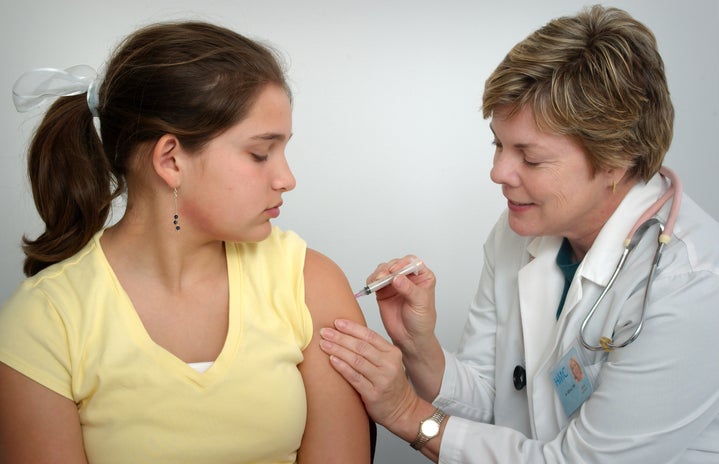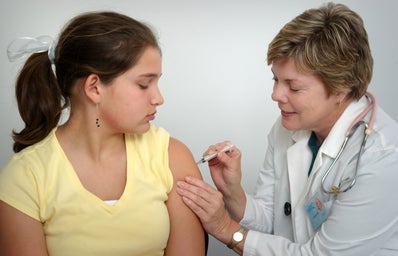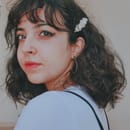The world is dealing with a lot of difficulties due to COVID-19 pandemic. When Coronavirus started to spread around the globe – in the first semester of 2020 – the nations took safety measures to contain the disease.
At the current moment, there’s 200 vaccines being tested to prove its effectiveness, and some are already available. The desire for a safer scenario moved the whole pharmaceutical market and the science.
But even with all the concern about the immunization, there’s a long way full of problems. Although the campaigns are at full blast, many people haven’t been vaccinated yet – for many different reasons – which is worrying, and the fact that countries are still fighting against the virus brings many doubts and insecurities even for those who have taken the doses.
In such a hard time, getting vaccinated represents a touching moment. Thinking about that, here are four stories of people who are already immunized and can talk about that feeling and their future expectations.
- Alaa Ramadan Elhalfawi – Jeddah (Saudi Arabia)
-
Alaa is a 26-year-old woman who lives in Jeddah – Saudi Arabia and works as a lab specialist. According to her, the authorities of her country dealt pretty well with the pandemic. At the beginning, the government canceled all the sport events, national and international flights, and governmental gatherings. For the first time in Saudi Arabia’s history, the religious authorities of the country asked for the faithful to pray in their houses.
Apps named Sehhaty and Tawakkalna were very useful for the population. The first one was activated to help people that were at home to find medical care without needing to go out, avoiding the risk of contamination. The other one was developed to ensure that the population had access to official information about the pandemic, and to solve, in the best way possible, the issuance of official documents. Besides that, Saudi Arabia is responsible for a ten-million-dollars donation to the World Health Organization (WHO). It’s important to emphasize that all those measures were taken when the country had about 300 cases.
Alaa also said that the pandemic didn’t affect her that much, not even her relationship with people around her changed. She was always very close to her family, so the lockdown didn’t change the way they used to treat each other. The worst was the beginning of quarantine, because everything was closed. Now, she already got the two doses of Pfizer-BioNTech vaccine.
The Saudi Arabia is already easing the social distance and, for this reason, Alaa feels safer to go out. In an optimistic way, she’s planning to travel to other countries and her expectation for the post-pandemic is the normal life return.
- Parveen Akhtar – Edinburgh (Scotland – United Kingdom)
-
In the beginning of the pandemic, the lockdown was decreed in all United Kingdom territory, and only the essential activities were allowed. In May, 2020, the social distancing measures were relaxed by the Prime Minister, Boris Johnson (Conservative Party).
The vaccination campaign started by the National Health System (NHS) – the public health system of the U.K. – and the government prioritized the over 60 people and the health professionals.
According to the 69-year-old lady, Parveen Akhtar, from Edinburgh, the lockdown affected her a lot. She felt sad because she wasn’t able to see and interact with other people, and quite stressed because she couldn’t go outside to walk like she used to do.
Parveen has diabetes, so it’s important to do some physical activity. Thinking about that, the virus impacted her routine and health in another way. Although she was frustrated because of the pandemic, her relationship with her family didn’t change, but she’s not sure about how to take care of her social relationships, even vaccinated.
Despite her immunization, the lady still wears mask to keep herself and the others safe. She really wants things to get back to normal.
- Dayane Hewitt – West Lafayette (USA)
-
Dayane is a 28-year-old Brazilian that lives in the United States. According to her, at the first moment, the government decreed that people should go outside with masks, and, after that, they started a lockdown to flatten the contamination curve.
When the vaccination campaigns started in all the USA territory, the vaccine was distributed by the public sector and the states had the autonomy to choose how they would do the vaccination. She also said that now that a lot of people have access to the vaccine, they are more comfortable to stay around other people, but personally, she’s not doing this too much yet.
As a regulatory and scientific affair specialist, Dayane needed to keep a normal routine because her job was considered an essential work. But, as a member of a risk group, she was really worried about her health. Taking this into account, she decided to work from home – in the way it was possible – to keep her safe. Before the pandemic, she was planning to come to Brazil to visit her family, but it wasn’t possible.
Coming back to normal life will not be easy for her. She feels anxious when she sees people hugging on TV, for example. Dayane said that it’s always necessary to remind herself about the things that she used to do before the pandemic. So, surely she’ll have to strive to get back to a normal routine and to deal with the pandemic-related anxiety. And, of course, the dream of visiting her family and friends once again is still alive.
- Leandra Guerra – Mamaroneck (USA)
-
Leandra is a 45-year-old piano teacher that lives in Mamaroneck. According to her, people were very worried about the coronavirus when the first cases started in New York, because no one knew its consequences. At that moment, Leandra had to go to the hospital with her youngest son, but the despair about the virus made her very scared about his sickness. Fortunately, it wasn’t COVID.
The pandemic brought a lot of brain damage to her. She tried to keep things okay, but her kids had to be in their house for a whole year and they couldn’t even go outside, so it was very complicated. All the fear, stress and worry caused conflicts between her family.
As a piano teacher, she had to stop with the classes, because it was inside her house, and it’s really hard to teach and to learn how to play piano in a remote system.
Now, with the easing of lockdown, Leandra sees a lot of people that are not following the protocols of social distancing and she thinks this is very disrespectful. Despite that, the places are opening and following the safety measures, and you have to do this too to get inside. The schools believe it’s possible to return to classroom lessons, but she is not sure if they will be able to keep the social distancing between the kids inside small rooms.
The fear still dominates her, because, despite being vaccinated, her kids are not yet. That’s why going out is still distant from her reality. But she’s trying to take them outside to walk around and breathe some fresh air.
Being a hygienic person, Leandra thinks she’ll take the new habits with her when she’s ready to face the world. Things that we normally did before the pandemic remains challenging for her, for example, at the only opportunity that she had to go to a restaurant when things were more flexible, she refused to be inside the place. So even in a very cold temperature, she stayed outside keeping a safe distance from the other people.
When everything gets better, her wish is to go out and meet her friends to do the activities that they used to do. Even if life never goes back to what it was, she knows that it goes on, so she’s thinking about the possibility of traveling to Brazil to visit her family at the end of this year.
—————————————————————
The article above was edited by Bárbara Vetos.
Liked this type of content? Check Her Campus Casper Libero home page for more!


